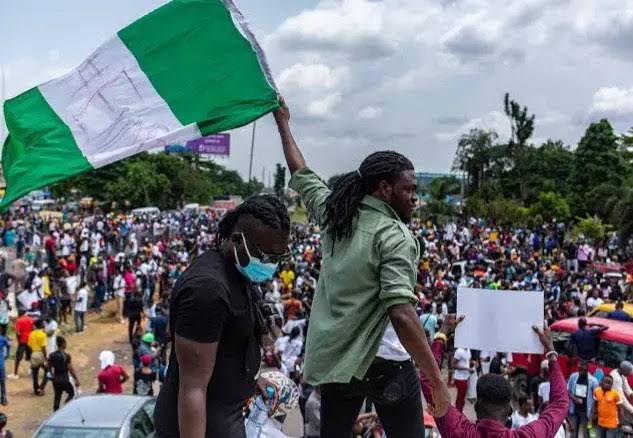- Halimah Olamide
In 2024, it was a mixed experience for Nigerians in the struggle to uphold human rights amidst a complex political landscape.
This report highlights ongoing challenges in the protection of fundamental rights for citizens, particularly in the areas of political expression, security, judicial independence, and the treatment of vulnerable groups in the year 2024.
Dele Farotimi, a renowned Nigerian lawyer widely known for his vocal criticism of governmental policies, corruption, and human rights abuses in Nigeria was arrested in Lagos on the 3rd of December, on orders from senior lawyer, Chief Afe Babalola (SAN)and was whisked to Ekiti State by police men.
The police arraigned Farotimi before a magistrate court, on a 16-count charge.
Similarly, Kayode Egbetokun, the Inspector General of Police (IGP), also filed 12 fresh charges against the lawyer at an Ekiti Federal High Court on December 6.
Farotimi had on the 2nd of July released a book titled; “Nigeria and Its Criminal Justice System”, which allegedly accused the senior lawyer of judicial corruption.
Following his arrest, his book went into high demand and became sold out in many book stores across the country. The book also ranked best selling in global politics on Amazon.
His detention sparked widespread condemnations both locally and internationally.
Nigerians on social media used the hashtag, #FreeDeleFarotimiNow to amplify calls for his release, which quickly gained popularity.
Some critics also pointed to what they saw as a pattern of increasingly authoritarian behaviour by the Nigerian government, which has been accused of silencing opposition figures and curbing political freedoms in recent years.
Many saw the arrest as a violation of his freedom of speech and right to political participation
His arrest served as a reminder of the challenges faced by activists and opposition figures in countries where political dissents are often met with repressions.
Many Nigerians, particularly those in the opposition and civil rights movements, began to question the sustainability of democratic freedoms in the face of such government tactics.
The End Bad Governance which held from August 1 to 10, 2024, also became a significant instance for the assessment of the human rights recoreds of the present administration.
The detention of suspects considered to be minors involved in the End Bad Governance Protest caused an outcry.
32 minors were arrested across Kano, Plateau, Gombe, Kaduna and Abuja, on charges of public destruction of property and treason for hoisting Russian flags.
Since their arrest, the minors faced prolonged detention in deplorable conditions without access to legal counsel, their families, or adequate medical attention.
After almost three months in custody, the minors were arraigned at the Federal High Court, Abuja however the scene had quickly turned into chaos as six of the minors collapsed with many of the others looking extremely malnourished and weak.
This sparked another debate on social media, condemning the Nigeria police and justice system.
In the same vein, NPO Reports that an e-hailing driver, Stephen Abuwatseya was assaulted by a House of Representatives member, Hon. Alex Ikwechegh Mascot.
In a video which went viral online, the lawmaker was seen hitting the cab driver and hurling curses, insults at him, he also threatened to make him (cab driver) disappear.
The cab driver according to his narration stated that he was to deliver a package to him, however on getting to there, he was asked to go into the house which he stated is against his job ethics.
This therefore angered the lawmaker who resorted to physical and verbal abuses.
The video caused criticisms from many Nigerians demanding the lawmaker’s arrest.
However, there are also those who believe it’s necessary to address what is considered ‘harmful’ online behavior.
Amidst political repression, escalating insecurity, and inadequate legal reforms, Nigeria’s human rights situation in 2024 continues to be a significant cause for concern.
These much have been identified and amplified by the National Human Rights Commission, the Amnesty International, Social Economic Rights and Accountability Project and others.
In this, the police, the Army and the Directorate of State Security have been fingered as being more responsible for cases of abuse of the rights of Nigerians.


